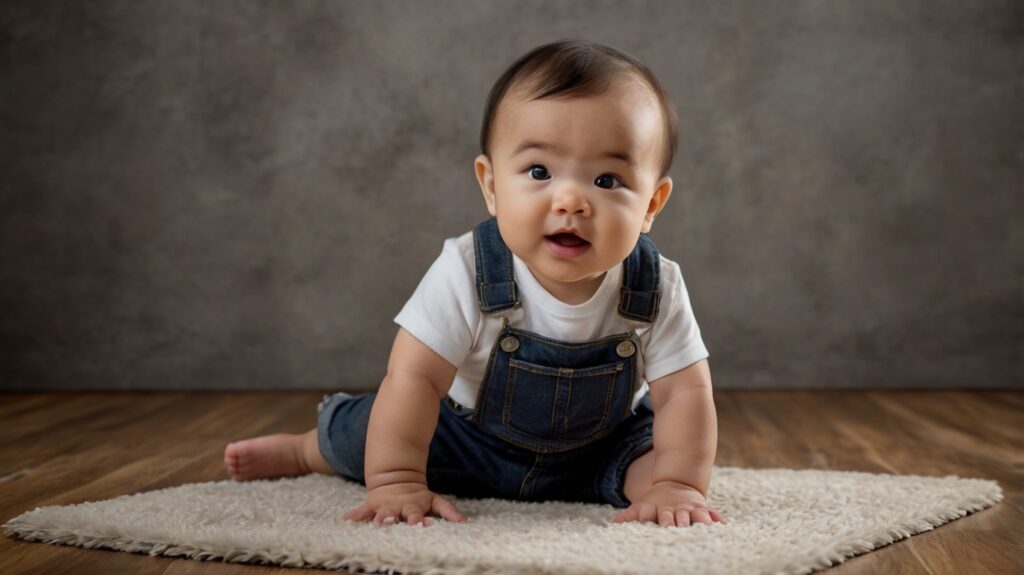
At 9 months old, your baby is becoming more adventurous, mobile, and interactive. This stage is filled with curiosity, energy, and rapid learning. They’re starting to understand more about the world around them and may even be developing early problem-solving skills.
Physical Development
- Movement and mobility – Many 9-month-olds crawl, scoot, or roll efficiently. Some may pull up to stand and even cruise along furniture.
- Coordination – Improved hand-eye coordination allows them to bang toys together, pass objects between hands, and pick up tiny pieces using the pincer grasp (thumb and forefinger).
- Strength building – Standing while holding on, bouncing, and trying to balance are common.

Cognitive Development
- Cause and effect – Your baby may drop objects repeatedly to see what happens or press buttons on toys to hear sounds.
- Memory skills – They recognize familiar voices, faces, and routines.
- Problem-solving – They experiment with ways to reach toys or explore new objects.
Social and Emotional Development
- Attachment – Separation anxiety may still be strong, with clinginess when you leave the room.
- Stranger wariness – Babies may be shy or fearful around unfamiliar people.
- Expressive interactions – Expect babbling conversations, laughter, clapping, waving, and imitating sounds.

Feeding at 9 Months
- Breast milk or formula – Still the main source of nutrition (about 24–32 ounces daily).
- Solid foods – By 9 months, babies usually eat 2–3 small meals plus snacks. Offer mashed or finely chopped fruits, vegetables, whole grains, yogurt, and protein sources like beans, lentils, eggs, or soft chicken.
- Finger foods – Encourage self-feeding with safe finger foods like soft fruits, small pieces of cheese, or steamed veggies.
- Allergens – Continue introducing common allergens (peanut, egg, dairy, fish) slowly, if approved by your pediatrician.
Sleep Patterns
- Nighttime – Many babies sleep 10–12 hours, though teething or developmental milestones may cause disruptions.
- Naps – Typically 2 naps per day, totaling 2–4 hours.
- Sleep associations – Some babies may wake at night seeking comfort due to separation anxiety.
Communication and Language
- Babbling – Your baby may say sounds like “mamama” or “dadada,” though not always with meaning yet.
- Gestures – Waving, clapping, and pointing are beginning forms of communication.
- Response – They may turn when you call their name or understand “no.”

Safety Tips
- Baby-proofing is crucial: cover outlets, block stairs, secure heavy furniture, and keep choking hazards away.
- Keep small objects, cords, and sharp items out of reach.
- Use safety gates, especially if your baby is crawling or pulling up.
When to Talk to Your Pediatrician
Every baby develops differently, but consult your doctor if your 9-month-old:
- Isn’t sitting with support.
- Shows no interest in moving (crawling, scooting, or rolling).
- Doesn’t respond to their name or familiar sounds.
- Has trouble using both hands equally.
Your 9-month-old is curious, playful, and eager to explore. They’re learning through touch, movement, and interaction—so providing a safe, loving, and stimulating environment helps nurture both their confidence and independence.